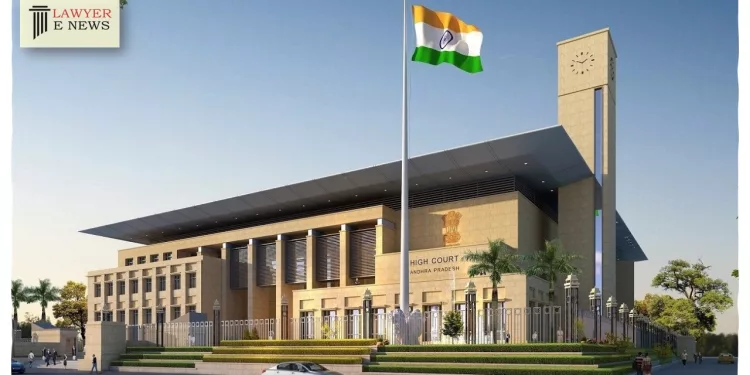Absence Of Call Data Records And Inadequate Corroboration Of Threats Undermined The Prosecution’s Case: Andhra Pradesh High Court Acquits In Kidnapping Case

In a significant judgment, the Andhra Pradesh High Court has acquitted several appellants and altered the convictions of others in a high-profile kidnapping for ransom case. The appeals were heard under the criminal appellate jurisdiction by a bench comprising Justices K Suresh Reddy and B V L N Chakravarthi.
The case revolves around the abduction of P.W-1, a Chief Engineering Management officer at L&T Company, on June 16, 2011. The appellants, Godugula Keshava, Gorla Obulesu, Kunchepu Ravi Kumar, and Syed Mahaboob Basha along with others, were charged with kidnapping for ransom, wrongful confinement, and threat to cause death or hurt, under various sections of the Indian Penal Code (IPC) and the Code of Criminal Procedure (Cr.P.C.).
Background
The incident began when P.W-1 was traveling in a Bolero vehicle driven by A-1 (one of the appellants). The vehicle was intercepted by A-3 to A-6, who then kidnapped P.W-1, confined him, and demanded a ransom of Rs. 30,00,000 from P.W-3, another company official. The prosecution alleged that the accused threatened to kill P.W-1 if the ransom was not paid.
The II Additional Sessions Judge, Kadapa, initially convicted the appellants for offenses under Sections 364-A, 342, 307, and 506 IPC, sentencing them to rigorous imprisonment for life, among other penalties. The appellants challenged this decision, leading to the current appeals.
Key Points of the Judgment
Convictions Under Section 364-A IPC Overturned: The High Court found that the prosecution failed to establish the essential ingredients of Section 364-A IPC, specifically the threat to cause death or hurt to secure the ransom. The convictions under this section were set aside.
Insufficient Evidence for Other Charges: The court highlighted discrepancies in the prosecution’s evidence, including the lack of corroborative call data records and proper identification of the recovered cash. Consequently, convictions under Sections 342 and 506(ii) IPC were also set aside.
Convictions Under Section 365 IPC Sustained: For appellants A-4, A-5, and A-6, the court sustained convictions under Section 365 IPC (wrongful confinement with intent to extort), sentencing them to seven years of rigorous imprisonment and a fine.
Court Observations and Analysis
The court meticulously examined the evidence presented, including witness testimonies, police reports, and investigation records. Key observations included:
Lack of Corroborative Evidence: The absence of call data records and inadequate corroboration of threats undermined the prosecution’s case. The court noted that the best evidence was not produced, suggesting an adverse inference under Section 114(g) of the Indian Evidence Act.
Non-Production of Cash: The prosecution failed to present the recovered cash during the trial, which was critical to linking the accused with the ransom demand. The procedures for interim custody of the cash, as mandated by precedents, were not followed.
Legal Interpretation: Citing Supreme Court judgments, the court reiterated that for a conviction under Section 364-A IPC, both kidnapping and the threat to cause death or hurt must be proved. In this case, the prosecution could not satisfactorily prove these elements.
Conclusion
The High Court’s judgment is a notable example of the rigorous standards required for criminal convictions, particularly in kidnapping for ransom cases. The court’s decision to set aside several convictions underscores the importance of thorough and corroborative evidence in securing a conviction. The judgment also emphasizes adherence to procedural requirements, such as proper handling and presentation of material evidence.
The altered convictions and sentences reflect the court’s commitment to ensuring justice is served based on the merits of the case. This judgment is likely to influence future cases involving similar charges, reinforcing the necessity for robust and credible evidence.
Date of Decision : April 3, 2024
Godugula Keshava v. State of Andhra Pradesh





